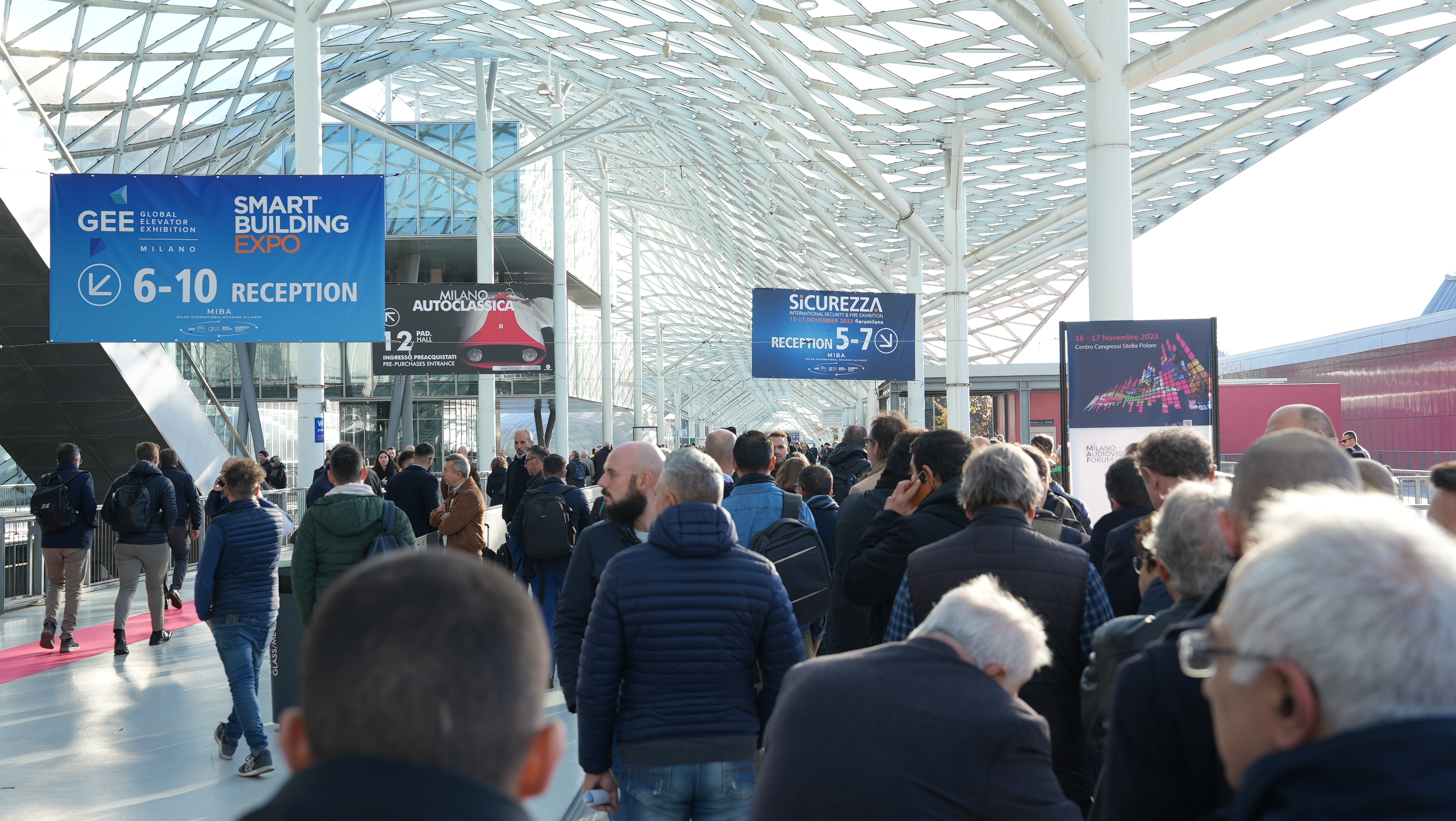Individual responsibility is essential, but today there are also security solutions which can guarantee that only known persons with a normal body temperature and wearing facemasks can enter high density locations, thus offering a further guarantee of a safe “new normal”.
Prior to the pandemic, many access control systems used fingerprint and face identification: but now that touch interfaces are no longer hygienically safe and face scans have been made impossible by facemasks, new strategies are required.
Among the possible solutions are biometric systems using iris scans to identify the user. This method avoids contact with an interface and enables the user to identify himself without removing his facemask.
Designed primarily for hospitals and areas at a high risk of contagion, the system introduced by iAccess identifies persons by using two motorised cameras to scan their iris up to a distance of 1 metre.
If the subject is registered with the system – for instance a company employee - but his temperature is higher than 37.5°C or he is not wearing a facemask, the system will deny him entrance and tell him that he must wear the appropriate PPE.
In the hope that the current emergency will soon be over everywhere, the use of the technologies tried out in this period will make.







